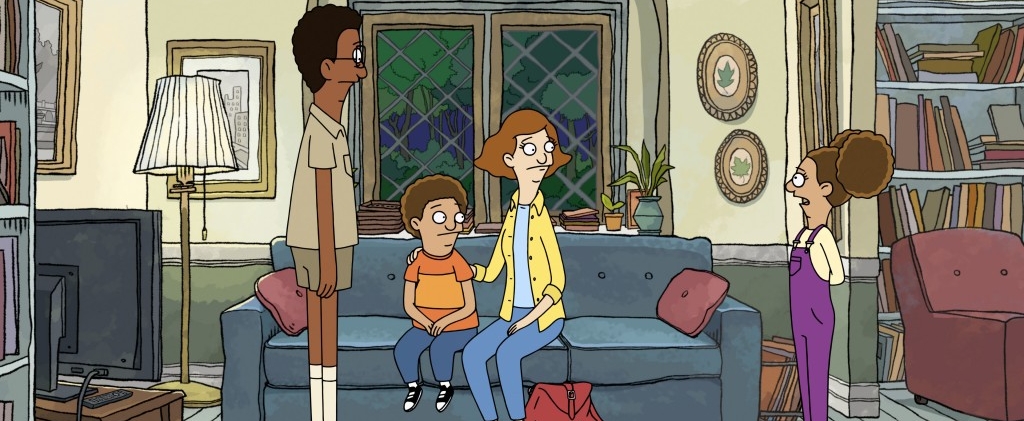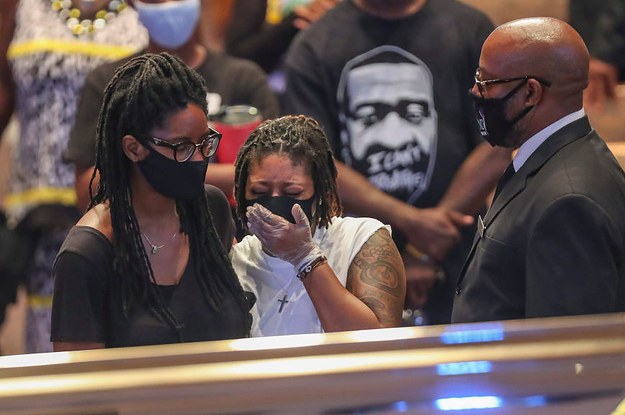Category: Worldwide
Category Added in a WPeMatico Campaign

The United States won the race to the moon but lost the initial race to space, and it seems the government might lose the rights to the Space Force trademark as well. Steve Carell’s Netflix show hit the streaming service last month, parodying the out-of-this-world new branch of the military that he announced in 2018.
Basically every announcement for the very real military unit has been met with jokes, from the very familiar logo to the uniforms these “spacemen” will be wearing whenever they actually get some action. But in the Netflix series, the branch is launching operations and actually trying to put “boots on the moon,” as they say many times in the 10 episodes of its first season.
That progress, though fictional, has actually created an interesting problem for the United States government. According to Hollywood Reporter, several trademarks for Space Force might actually be awarded to Netflix because the show exists and has made greater strides in solidifying ownership of the name over the actual government:
But his administration has proven dovish when it comes to protecting the “Space Force” name itself. On May 29, Netflix premiered its comedy series Space Force, from The Office showrunner Greg Daniels and star Steve Carell. The U.S. military has done nothing to stop the streamer’s satirical take, nor could it thanks to the First Amendment. But less noticed is how, around the globe, the streaming giant has outmaneuvered the U.S. government to secure trademark rights to “Space Force” in Europe, Australia, Mexico and elsewhere. Meanwhile, the Air Force merely owns a pending application for registration inside the United States based on an intent to use. Meaning that the feds have gotten a place in line but no confirmed trademark rights thus far.
The issue is complicated, and also not necessarily that big of a deal depending on what the government plans to do with Space Force. As THR pointed out, a Netflix show about a mostly fictional military branch and actual astronauts getting trained to head into space can happen simultaneously without too much conflict. Still, licensing for merchandise and other concerns may get iffy, should Space Force develop into an entity of a similar size to, say, the Marines or Air Force while the Netflix show continues to exist.
Whether there will be a legal battle over the trademark isn’t certain right now, but it does present some interesting First Amendment issues. The piece notes that the video game Call of Duty actually won a case where the government sued for the use of Humvees in the war-based game, and since the show was both first to filing a lot of these trademarks and is also much more established as A Thing, it would be an uphill battle for the government, should they try to get aggressive:
But aggression on the trademark front hasn’t been a hallmark of the Department of Defense under President Trump — and the best place to find proof of that may be with respect to Netflix’s “Space Force” trademark registrations. Although the United States operates on what’s called a “first-to-use” trademark registration system, where priority is based on actual use in commerce rather than who gets to the U.S. Patent and Trademark Office first, many other countries operate on a “first-to-file” basis. Records show that Netflix was submitting applications for “Space Force” around the world as early as January 2019. In other words, the Department of Defense was caught sleeping.
Given the mostly tepid response to the show’s first season, it’s honestly unclear if both Space Forces intend to stick around long enough to make this all worthwhile. But you can never be sure how willing certain world leaders are for a legal fight, can you?
(Via Hollywood Reporter)

Los Angeles Lakers star LeBron James certainly made Adin “Adin2Huncho” Ross’ day on Sunday when he jumped on Ross’ Twitch stream to say hello. According to Ginx, Ross was already playing NBA 2K20 with James’ son, Bronny, when he heard the Lakers star in the background and asked if he could come on the stream. James obliged, and the two had a brief but fun conversation.
When @KingJames jumps on your Twitch stream
(
:@adinross)pic.twitter.com/JB1yB64bfH
— Dime (@DimeUPROXX) June 8, 2020
“He said, is this LeBron,” James laughed after hopping on the mic.
“I love you,” Ross, a fairly well-known Twitch streamer, said in return. “I don’t want to be a fanboy, but like, I love you.”
“Nah, it’s all respect, man,” The King said, shortly before getting back to his usual Sunday activities. “I appreciate it, man. You show love and respect to me and my son.”
Naturally, Ross freaked out a little bit after James got off the mic. He jumped up with his arms in the air, before letting out an incomprehensible sound and repeatedly yelling, “What the f-ck!”
Unfortunately, Ross, who has 19.7K followers on Twitter and around 85K on Twitch, was suspended from the streaming platform for seven days on Monday after breaking community guidelines. In a screenshot he posted to Twitter, the message from Twitch said that he had featured a “suspended broadcaster,” but did not note who that was or when the guidelines breach occurred. Still, it was probably worth it for a moment with The King that fans everywhere would love the chance to have.

Patriot Act with Hasan Minhaj: Volume 6 (Netflix) — It’s kind of the perfect time for Netflix to be bringing us another volume of Hasan Minhaj’s informative talk show. As host, Minhaj has perfected a formula that’s equal parts comedy and valuable information, and he’s only getting better this season as he takes on everything from police brutality to COVID-19 and the whitewashing of the legalized marijuana industry. Will you laugh over his beef with Nick Lachey? Yes, but you’ll also learn a hell of a lot about racism, social distancing, police training, and more.
Central Park (Apple TV+) — We’re just a few episodes into this animated musical series from Apple TV+ which means now’s the perfect time to get caught up. With a voice cast that includes Kristen Bell, Josh Gad, Stanley Tucci, and Daveed Diggs — and a story that takes on themes of gentrification and capitalism — it’s one of the more interesting series the streaming platform has delivered so far.
The Bachelor: The Greatest Seasons – Ever! (ABC, 8:00 p.m.) — The show is taking a look back at some of its best bachelors and it’s kicking things off with Sean Lowe. Get ready to re-live Guinness World Record-breaking PDA moments and sad adoption stories.
The Titan Games (NBC, 8:00 p.m.) — Boxer Claressa Shields and ex-NFL lineman Joe Thomas serve as pro Titans as athletes take on the Central Division Finals.
Roswell, New Mexico (CW, 9:00 p.m.) — Liz and Max attempt to uncover who might be behind a deadly attack planned during the town’s CrashCon festival while Michael is forced to do someone else’s bidding.
Songland (NBC, 10:00 p.m.) — Emmy, Grammy and Tony Award-winning singer/songwriter, Ben Platt, comes to “Songland” to hear unknown songwriters pitch their original material.

Hartley Sawyer was fired from The Flash on Monday after a series of sexist and racist tweets were circulated in the wake of continued protests against racial discrimination and police brutality. Sawyer’s tweets, many of which were from 2011-14, are now deleted but their amplified presence on social media forced The Flash to remove him from the show altogether.
Sawer, who joined the show in 2017, was fired on Monday after a number of tweets surfaced from his past that included references to sexual abuse or contained racist jokes. Sawyer played Ralph Dibny, the Elongated Man, as a reoccuring character before becoming a series regular in 2018. But long threads of screenshots of his old tweets circulated online over the weekend, including one where Sawyer said “The only thing keeping me from doing mildly racist tweets is the knowledge that Al Sharpton would never stop complaining about me.” He also referred to seeing a woman naked in an audition in 2014: “Enjoyed a secret boob viewing at an audition today.”
Others specifically referenced assaulting women, or just contain troubling language about sexual violence. “Date rape myself so I don’t have to masturbate,” Sawyer once tweeted.
a collection of @HartleySawyer‘s misogynistic, racist, fatphobic, etc. tweets (sorry if there’s duplicates) pic.twitter.com/Kv0afDbiP1
— steph (@themirrorin6x17) May 30, 2020
The Hollywood Reporter shared details of the announcement, including a statement from the show.
“Hartley Sawyer will not be returning for season seven of The Flash,” reads a statement from The CW, producers Warner Bros. TV and Berlanti Productions and executive producer Eric Wallace. “In regards to Mr. Sawyer’s posts on social media, we do not tolerate derogatory remarks that target any race, ethnicity, national origin, gender, or sexual orientation. Such remarks are antithetical to our values and polices, which strive and evolve to promote a safe, inclusive and productive environment for our workforce.”
Wallace also tweeted about the matter on Monday.
My statement regarding Hartley Sawyer and THE FLASH. pic.twitter.com/hni0MxOWZU
— Eric Wallace (@ewrote) June 8, 2020
For his part, Saywer issued an apology on Instagram.
His Twitter account, however, no longer exists.
[via THR]

While the NBA has been on hiatus since March 11 due to the global COVID-19 pandemic, a different virus has reared its ugly head again — this one, mired in the depths of U.S. history. Since then, George Floyd was murdered by former Minneapolis police officer Derek Chauvin and nationwide protests for Floyd, Breonna Taylor and the countless other Black lives lost to police violence have ensued. Nurses and doctors have worked tirelessly on the hospital front lines while protesters have risked their own safety and lives to march for justice.
As the NBA is gearing up to resume its season in Orlando next month, so many within the league believe that it is important to not lose sight of the message and the fight for justice. On Monday, the Los Angeles Clippers released a powerful two-minute video narrated by Paul George, who spoke about the events that have transpired in the U.S. while the NBA was on pause. The short film, titled “While We Were Away,” shows how the country has banded together to fight the coronavirus and protest against structural racism and police violence against Black Americans.
While We Were Away
Narrated by: @yg_trece pic.twitter.com/2Tz8U0UI7F— LA Clippers (@LAClippers) June 8, 2020
The video opened with the words, “Basketball is the greatest game in the world, but it cannot ease our pain nor heal our wounds.” George, who joined the team in free agency last summer, began by acknowledging the work and commitment of health workers and other essential workers during the pandemic.
“While we were away, they closed up the courts, pulled down the rims,” George said. “The virus spread, the hospitals surged. Masks became the uniform. Zoom became the job. Essential was redefined — doctors, nurses, the grocery clerk: our All-Stars.”
The 30-year-old went on to pay tribute to Floyd, Taylor and Ahmaud Arbery, and call out the “national cycle of racial injustice and police brutality.”
“While we were away, George Floyd, Breonna Taylor and Ahmaud Arbery were murdered. Cause of death: another, more familiar virus, centuries-old,” George said. “The names and dates change. The national cycle of racial injustice and police brutality do not.”
George also noted the importance of continuing the movement, saying, “There is action to take, work to do beyond pretty statements and glossy videos.”
In the past two weeks, many NBA and WNBA players including Jaylen Brown, Malcolm Brogdon, Giannis Antetokounmpo, Damian Lillard, Natasha Cloud, Jewell Lloyd and Stephen Curry have partaken in nonviolent protests and marches for the Black Lives Matter movement. While George and the short film conceded that many lives, jobs and livelihoods have been lost due to the pandemic, the protests have brought hope and some signs of progress. Additionally, as basketball’s return is imminent, its role as a global platform for social good and awareness will be equally as important.
“Basketball offers no vaccine, no cure,” George said toward the end of the video. “Only an example of teamwork, of togetherness.”
The words, “Bigger than basketball,” flashed on the screen to end the video.
Booking a rental home is never easy. You have to actually find one across a plethora of sites, deal with the occasional odd landlord, and sometimes, the house just straight-up tries to murder you and your whole family.
In the new trailer for You Should Have Left from Blumhouse Productions, Kevin Bacon and Amanda Seyfried find themselves trapped inside one particularly creepy piece of architecture that seems hell-bent on terrifying the couple and their young daughter. The house also seems to have a nightmare-ish focus on Bacon’s character as it turns his own secrets against him.
Here’s the official synopsis from Universal:
Theo Conroy (Bacon) is a successful middle-aged man whose marriage to his much younger actress wife, Susanna (Seyfried) is shredding at the seams, frayed by her secretiveness, his jealousy, and the shadow of his past. In an effort to repair their relationship, Theo and Susanna book a vacation at a stunning, remote modern home in the Welsh countryside for themselves and their six-year-old daughter, Ella (Avery Essex). What at first seems like a perfect retreat distorts into a perfect nightmare when Theo’s grasp on reality begins to unravel and he suspects that a sinister force within the house knows more than he or Susanna have revealed, even to each other.
You Should Have Left hits VOD on June 19.
(Via Universal Pictures)

Up-and-coming singer Dominic Fike launched his career in music when he gained a fanbase following an EP of demos released in 2018. The EP caught the attention of many major labels and the singer eventually signed a multi-million dollar deal with Columbia Records. Fike has been working on his debut album since and was supposed to release its lead single this week. However, in light of the protests happening across the country in response to Minneapolis police’s murder of George Floyd, Fike has opted to delay his release. Instead, the singer shared his own story of experiencing police violence.
Fike made the announcement in a typed letter on social media. “It doesn’t feel right to release music today but it does feel right to continue this conversation,” Fike wrote. The singer added that much of his family has been targeted by police:
“My life has felt cursed since I was a little kid. I’ve watched police, the supposed good guys, beat my mom and take her away. I’ve watched my brothers taken away. Aunts, Uncles. Sh*t, my dad just got 20. It’s like they had a problem with my family. I’ve since realized the real curse is the system we live in is designed fun us to lose, again and again.
After what I witnessed in my upbringing, I’ve made it a point to not be an aggressor with police. Yet somehow, I caught a felony battery on law enforcement charge and did eight months. This was not the reality of what happened. I tried to defuse a situation with the police and my younger brother, I interfered and the cop made up a story to fit his actions. The judge thought I was better off with this sh*t on my record. I’m lucky I could do music, since no one will ever hire me. I can’t tour in the UK. I can’t go to so many places, because of a decision this asshole made out of spite. None of these decisions were based on trying to help us, they wanted us to disappear.”
Fike continued to dispel the narrative that police violence happens because of a few “bad” officers: “Systemic racism and brute, abusive power are issues engrained into this country but things can change.”
Read Fike’s full statement above.





